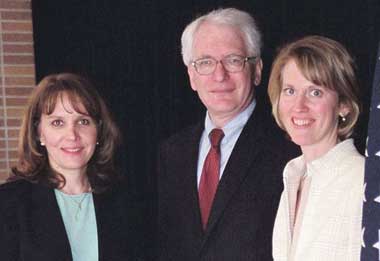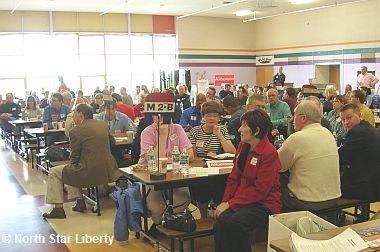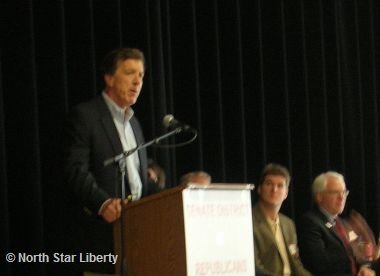
West metro school districts are in quiet conniptions over an April 18 vote by Rep. Maria Ruud (DFL-Minnetonka). Ruud's vote helped to revive a bill that could raise health insurance costs for west metro school districts, to the tune of hundreds of thousands of dollars.
The bill, HF 517 by Rep. Greg Davids (R-Preston), would mandate that school district employees join an insurance buying pool to reduce health insurance expenses. Unfortunately for some districts, their costs could actually go up in such an arrangement. This is why the Association of Metropolitan School Districts opposes this legislation:
To help school districts continue to provide quality, cost-effective health care for their employees, the Governor and Legislature should continue to allow school districts to have local control and flexibility to design benefit plans that meet the needs of their employees.The Minnesota Department of Finance's fiscal note for the bill concluded:
While the goal of the pool is to lower health care costs for school districts and school district employees, some districts may experience decreased costs and/or improved health care coverage, other districts would likely experience increases in costs and/or poorer health care coverage. There will be a mixture of winners and losers. For districts, there will be pressure in contract negotiation to gain back coverage losses, or to access district cost savings in the form of salary or other increases.So even districts that saved money could be pressured to spend the savings on increased salaries and benefits!
The Minnesota School Boards Association "Opposes mandating participation in a state-operated insurance pool for public school districts," according to its Legislative Policy.
On April 18, Davids moved the bill as an amendment to a supplemental state government appropriations bill, HF 2833. Davids's amendment included a provision to allow larger school districts to opt out, and provide political cover for their representatives:
Each exclusive representative of employees of a type of entity described in paragraph (b) which, on July 1, 2005, employed 400 or more full time equivalent teachers shall determine whether the employees it represents will participate in the school employee group of the public buyers group program.Districts whose teacher headcount could fall below 400, due to falling enrollment for example, must be sweating this provision.
The amendment passed 80 to 54, but the west metro roll call is telling:
- 32A Joyce Peppin (R) - No; 32B Kurt Zellers (R) - No. (Maple Grove)
- 33A Steve Smith (R) - No; 33B Barb Sykora (R) - No. (Mound-Excelsior-Orono)
- 41A Ron Erhardt (R) - No; 41B Neil Peterson (R) - No. (Edina)
- 42A Maria Ruud (DFL) - Yes; 42B Eric Paulsen (R) - No. (Minnetonka-Eden Prairie)
- 43A Jeff Johnson (R) - No; 43B Ron Abrams (R) - No. (Plymouth-Minnetonka)
- 44A Steve Simon (DFL) - No; 44B Ron Latz (DFL) - No. (Hopkins)
Ruud's vote was not needed to pass the amendment, but outstate districts and Education Minnesota owe her one for this vote. Her constituents should be asking "why?"
POLITICS









